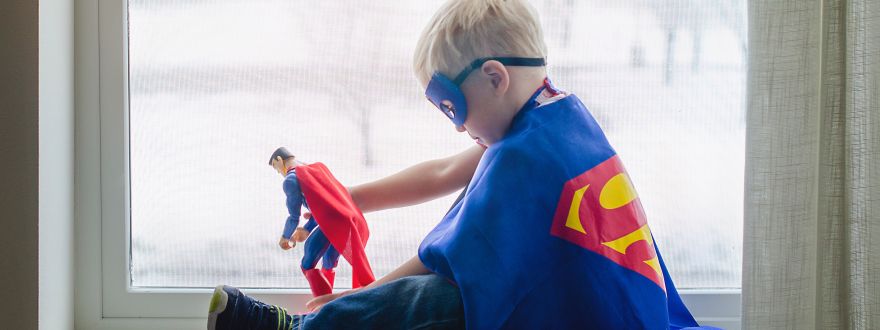
Emergencies throw normal operations out the window. Much of what we’re used to relying on – electricity, phone service, internet connections, the physical safety of our work environment – disappears. To keep people safe and restore operations fast, you and your staff will have to rely on your preparedness superpowers

Superpowers? We all have them. We just don’t realize that they are superpowers. Comic book superhero powers like invisibility or force fields aren’t all that handy in most emergencies. But a strong social network, a knack for organization, or the ability to comfort people who are seriously freaking out are preparedness gold.
Here are some examples of preparedness superpowers:

Camping experience. You know how to (and may have the equipment to) cook, provide light, handle sanitation, and maintain hygiene without electricity or running water.

Handiness or craft skills. You know how to make stuff and fix stuff with whatever materials and tools are available.

Big-picture thinking. You’ll be able to identify the broad areas where the team should be taking action and devoting resources.

Communications skills. As the team develops and implements its action plan, you can communicate it clearly to staff, clients, and the outside world.



Calm in the face of adversity. You’re the one who’s going to start making a plan and identifying resources while everyone else is running around with their hair on fire.
 Creativity and improvisation. When normal systems are down, new ones need to be created to continue operations. You’ll be able to see alternative ways of doing things with what’s available.
Creativity and improvisation. When normal systems are down, new ones need to be created to continue operations. You’ll be able to see alternative ways of doing things with what’s available.

Being well-networked. You will know how to reach the people the organization will need. Because you have personal relationships with them, they will respond to you.

Skill with recordkeeping and tracking systems. You know that spreadsheets don’t have to be on a computer. You’ll figure out a way to keep track of who’s doing what and what’s being spent.

Mental health training or high emotional intelligence. Emergencies can be traumatizing, and some people will exhaust their mental coping skills. You’ll know how to validate their feelings and redirect them constructively.

First aid or medical training. People may be hurt. You’ll know how to help.
Here’s a great exercise for building your team’s confidence and cohesion. At a team meeting, ask everyone to identify their preparedness superpower – something they’re good at that could be useful in an emergency. Give some examples if needed. Have them think about it, then share their ideas with a neighbor. Since people sometimes don’t recognize what they’re naturally good at, talking to their neighbor may help them see their own skills better.

Next, everyone shares their superpower with the group. People will see their own strengths and learn what other team members bring to the table. As people start recognizing and appreciating each other’s skills, you’ll see improved team performance every day, not just in the face of an emergency.
Cate Steane is the Founder of Make It Happen Preparedness Services, which helps businesses secure their future through emergency preparedness training and planning. Find out more at www.makeithappenps.com.





